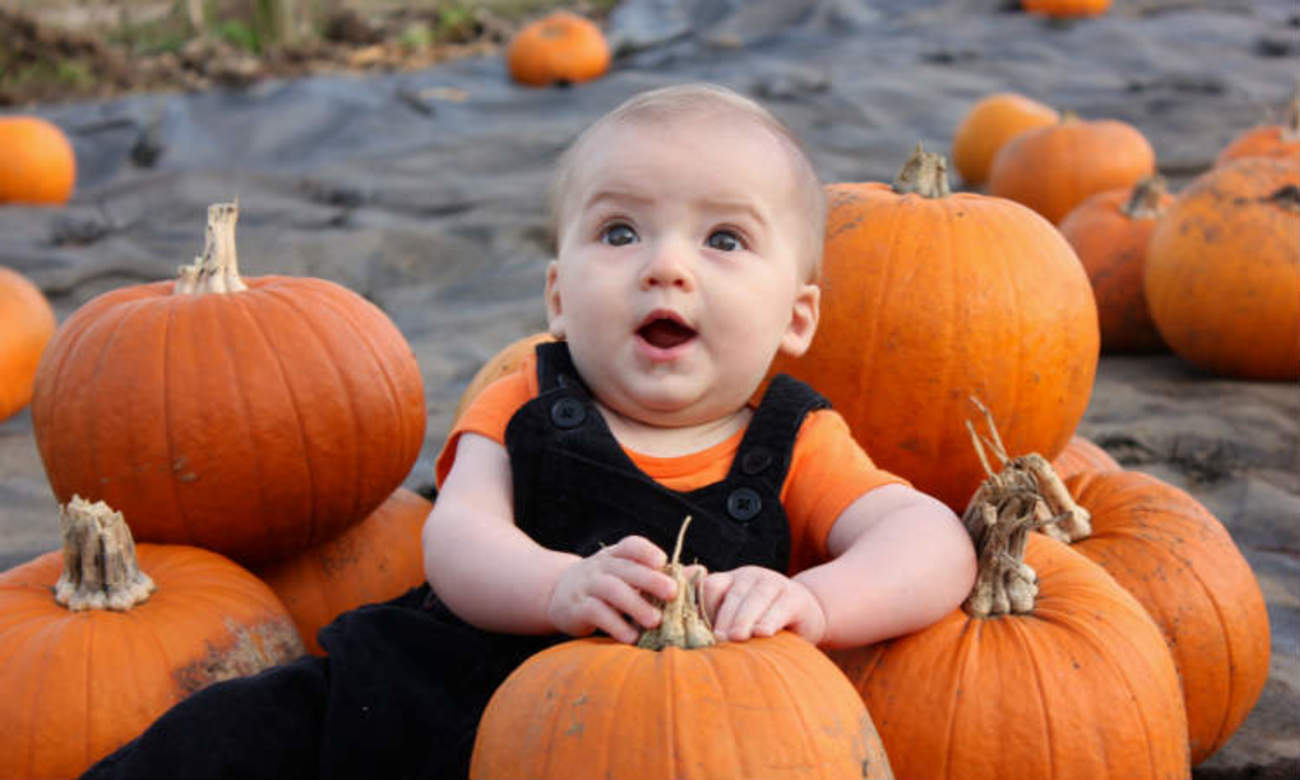
"She can't walk yet," I said to Michael.
"She's not allowed to eat candy yet," I added.
"She can't even say 'trick or treat!'" I said, wrapping up my closing argument. "People will think we're exploiting our child to get free candy for ourselves!"
I was halfway certain Michael was exploiting our child to get free candy for himself.
Then again, I knew Michael had been looking forward to this. Had assumed she'd be walking by now. Wanted to share this with her. Wanted her to really enjoy her second Halloween. Besides, she could say "boo." That had to count for something, right?
But Michael and I had previously agreed it was pointless to spend time or money or effort on things Emily couldn't yet appreciate or understand. What would be the point in dragging her around the neighborhood in her monkey costume if she had no comprehension of what was happening?
This is a rule we are always breaking
A line that is always shifting. Just last weekend, we brought Em to a local farm to "pick out" a pumpkin. First, we walked her around to see the chickens and the roosters and the bunnies and the donkeys, which made perfect sense because she loves her Baby Einstein book about farm animals. Then we sat her down on the ground between two pallets of pumpkins, waiting for her to give one of them significantly more attention than the others. Finally, we paid for her pumpkin and some local honey and headed back to the car, at which point we ran into friends who asked if Em had gone on one of the pony rides or gotten her face painted.
"Nooo… " I said, drawing the word out guiltily. "We're terrible parents," I added, trying to preempt judgment by admitting to it first.
But the truth was, I'd simply thought she was too young to appreciate it.
Still, by that line of reasoning, why were we there at all?
Why did Emily need a pumpkin? We didn't even have plans to carve the damn thing.
In just a few short months, we'll have Christmas to contend with. "Maybe we shouldn't put up the tree this year," Michael said. He was trying to appeal to my sensible side, the side that knew our newly mobile daughter would be 18 months old at Christmas, and probably more destructive than all three of our cats combined. I knew he was really trying to get out of decorating the tree. He hated decorating the tree. I gasped in horror at his blasphemy.
"We have to decorate!" I exclaimed. "This is a thing we do as a family!"
But really, this was a thing I had always done with my family
Where he highly valued the thought of taking his daughter trick-or-treating, I idealized the vision of us passing around the Christmas ornaments we had amassed over the years, each one imbued with special meaning and memory, hanging them on the tree, placing porcelain reindeer and snow globes and light-up trees carefully around the house.
Both of us hungered to make each moment magical for our daughter, each of us in our own way. But at this point, the traditions we each desperately grasped onto were probably signs of selfish nostalgia more than anything else. These practices provided us with a sense of grounding in the family traditions each of us had experienced while growing up. These practices meant nothing to Emily.
I mean, let's be real, this is a girl who likes to play with the recyclables
When I force myself to think now of the things she'll most likely remember from this time in her life — if she remembers anything at all — I know it won't be pumpkins and Christmas lights. It will be the traditions we created together, the things not tied to our own pasts or even to particular holidays, but the things we began doing because of the way they made Emily's entire face light up. The drum circles we do in the living room while Emily shimmies her shoulders. The practice of reading books together, the sounds of cows and bees making Em look sharply up at us and smile. Playing peekaboo while we both pull blankets over our heads.
And someday, but not yet, the holidays will mean something to her, too. And she'll carry our family's traditions with her into her future.







